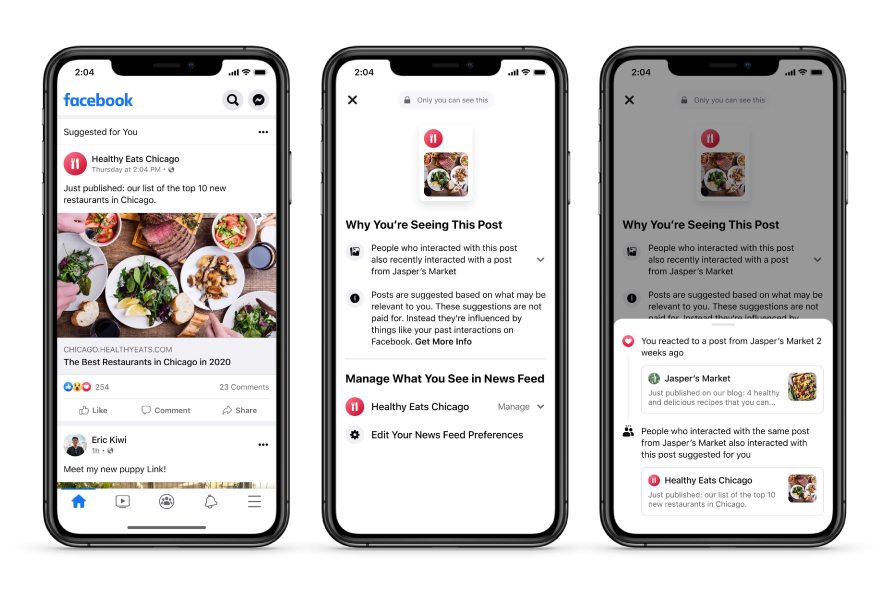Facebook today announced some big changes to comments on posts and the algorithm-based News Feed.
Facebook has announced in a new blog post that starting today, the company is rolling out a new tool that will allow people to choose who can comment on their public posts. The announcement states:
Today we're launching a new tool to give you more control over what you share in News Feed by managing who can comment on your public posts. Now you can control your comment audience for a specific public post by choosing from a menu of options ranging from anyone who can see the post to just the people and Pages you tag.
New feed filter bar for iOS will be released in the next few weeks
According to Facebook, this will help limit "unwanted interactions" and is available not only to regular users but also to brands, creators and public figures. Facebook is also making it much easier to turn off the algorithmically ranked News Feed. Users can already switch from News Feed to an alternative view. The settings for this should now be much easier to find. The post states:
The feed filter bar also offers easier access to Most Recent, making it easier to switch between an algorithmically sorted news feed and a chronologically sorted feed with the most recent posts first. Android app users can access the feed filter bar when they scroll up in the news feed. The same functionality will be available in the iOS app in the coming weeks. Regardless of how often you use them, you'll find the Most Recent and Favorites features in the Shortcuts menu.

Facebook News Feed: “Why am I seeing this?”
The feed filter will appear at the top of your Facebook timeline and will be available on iOS “in the coming weeks.” That means we’ll have to wait. Facebook also wants to add a new “Why am I seeing this?” option to News Feed content. As a reminder, a similar option already exists for advertising. “Why am I seeing this ad?” When users tap on posts from friends, pages, or groups, they will now be shown why they are seeing a particular post in their timeline, for example due to related engagement (liking a previous post), related topics (liking a topic), or their location. The changes are sure to be well received. The move is reminiscent of the changes Twitter made to limiting the number of people who can reply to certain tweets. If you want to know more details about the changes, you can find the blog post here. (Image: Facebook)





